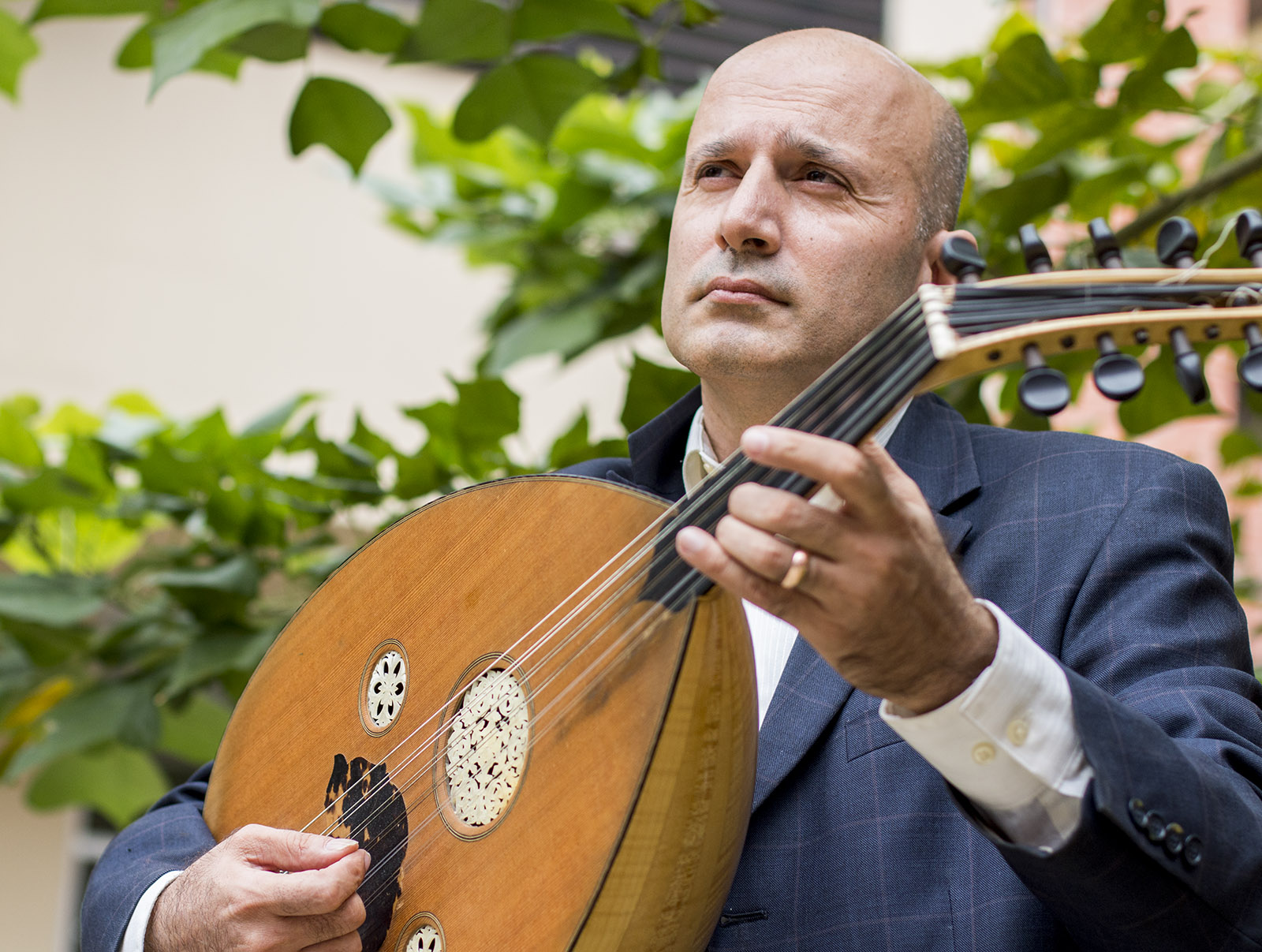Sounds of Schoenberg: The Turkish ‘ud’

Assistant professor of ethnomusicology Münir Beken (above) studied the Turkish ud at the State Conservatory of Turkish Classical Music in Istanbul. (Efren Piñon/Daily Bruin)
By Emily McCormick
Jan. 22, 2016 12:29 a.m.
Each week, Daily Bruin A&E will explore the instruments of the World Musical Instrument Collection and their performers that all contribute to the musical landscape of the UCLA Herb Alpert School of Music. This week, we highlight the Turkish “ud,” a fretless lute played as a solo instrument or member of a larger ensemble.
Münir Beken said he was like a honeybee while he studied the ud in Istanbul. He darted from teacher to teacher at the State Conservatory of Turkish Classical Music, absorbing all their wisdom and every note they played, each as sweet to his ears as honey.
The most important lesson he learned was how to listen. After all, ud instruction begins as an imitation game, Beken said.
“(The teachers’) performances become part of your musical vocabulary,” said Beken, an assistant professor of ethnomusicology. “Then you can learn to combine elements in unique ways and invent your own musical language – I’m hoping that’s what I did.”
Learning the ud requires diligence, but Beken never needed to be reminded to practice. Growing up in a small, thin-walled apartment in Istanbul, the real struggle was finding creative ways to accomplish more hours of study without disturbing his neighbors.
“I used to squeeze my handkerchief between the strings and the soundboard of my ud to dampen the sound,” Beken said. “Somebody would eventually bump on the walls and tell me to go to sleep.”
One of the challenges of the ud, he said, is performing with proper intonation, since the stringed instrument does not have frets to guide its player. But aside from this discrepancy, he said the ud is similar to a guitar with a pear-shaped body and short neck.
Although Beken does not come from a lineage of professional musicians, he said his family supported his career by allowing him to study in a conservatory beginning when he was just in secondary school. In his classes, he listened admiringly as his peers plucked out complicated scales and exercises with deft fingers, inspiring him to work to master his own instrument.
“It wasn’t a competition, but I think we motivated each other because we were all practicing very hard,” Beken said.
Above all, Beken said his studies were fueled by an intrinsic curiosity of music and theory. He discovered early on that music provides a form of intoxication to listener and performer alike.
“There is a kind of heightened state when you compose or perform,” Beken said. “I was interested in learning the secrets of the universe through music.”
Beken said the sound of the ud – a distinctive buzzing, resonating ring – has been a prominent force in Middle Eastern music since the 15th century. But the ud is far from an antique. Beken said he has helped bring it to the modern musical repertoire by blending it with Western instruments like flute, violin, viola and cello.
Beken is not the only one to embrace an updated take on ud performance; he has seen jazz ensembles incorporating the instrument and said instrument makers are now even crafting electric uds. The improvised riffs common in ud performance have made the instrument an attractive addition to contemporary music, Beken said.
By allowing the ud to evolve, Beken said the instrument’s legacy will continue.
“Going forward, I would say (the ud) is going to be as important as it is today, if not more important,” Beken said. “It has a unique sound and rich history – there is no substitute for it.”
Compiled by Emily McCormick, A&E contributor.


